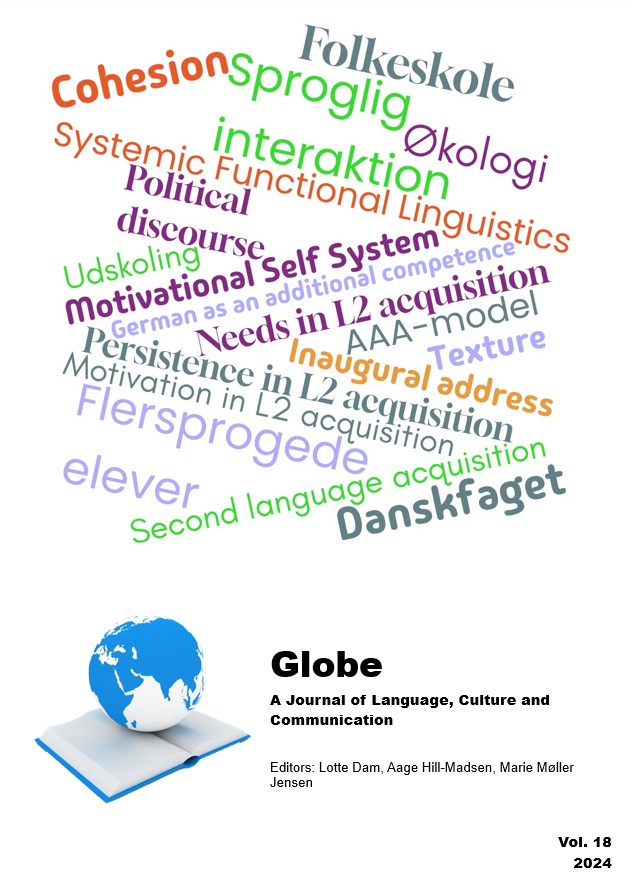Eleven på dobbeltarbejde – lærer-elev-interaktion behandlet med den økologiske AAA-model
DOI:
https://doi.org/10.54337/ojs.globe.v18i.9057Resumé
This article studies how linguist Leo van Lier's ecological AAA-model (van Lier 1996), consisting of the three principles of awareness, autonomy, and authenticity, can be used to analyze teacher-student interactions in the classroom. Additionally, the model's application in developing teaching methods is illustrated. The research question addressed is: How can the AAA-model, as a tool for developing, carrying out, and analyzing teaching, help create learning-promoting action opportunities for multilingual students? An interaction between a teacher and her student during a Danish lesson in a 7th grade at a primary school ('Folkeskole'), where the majority are plurilingual students, is analyzed. The analysis, based on Mayring (2015), is structured as a deductive qualitative content analysis. Using the ecological AAA-model as the theoretical foundation, a learning situation is illustrated where neither the teacher nor the student achieves the desired outcome. The teacher aims to promote autonomy and authenticity for the student but ends up acting counterproductively, causing the student to do "double work" and become increasingly insecure and dependent throughout the interaction. The importance of considering all three principles simultaneously to promote learning and create meaningfulness, choices, and transparency in relation to academic and pedagogical goals is clarified based on the model.
Downloads
Publiceret
Nummer
Sektion
Licens
Articles published in Globe: A Journal of Language, Culture and Communication are following the license Creative Commons Attribution-NonCommercial-NoDerivs 3.0 Unported (CC BY-NC-ND 3.0). Authors retain copyright and grant the journal right of first publication with the work simultaneously licensed under a Creative Commons Attribution License: Attribution - NonCommercial - NoDerivs (by-nc-nd). Further information about Creative Commons


